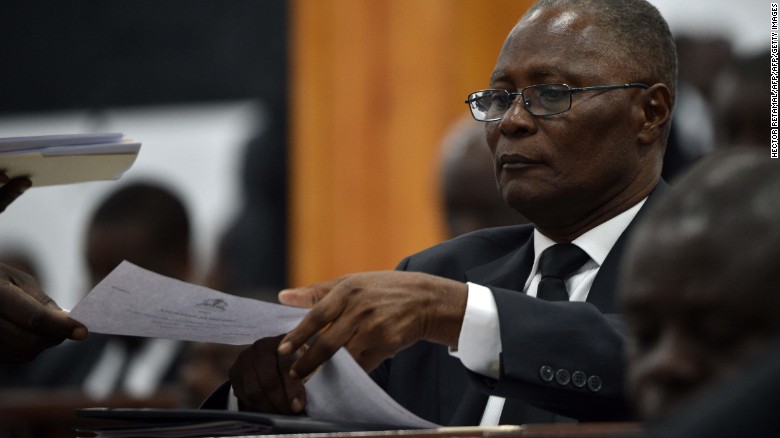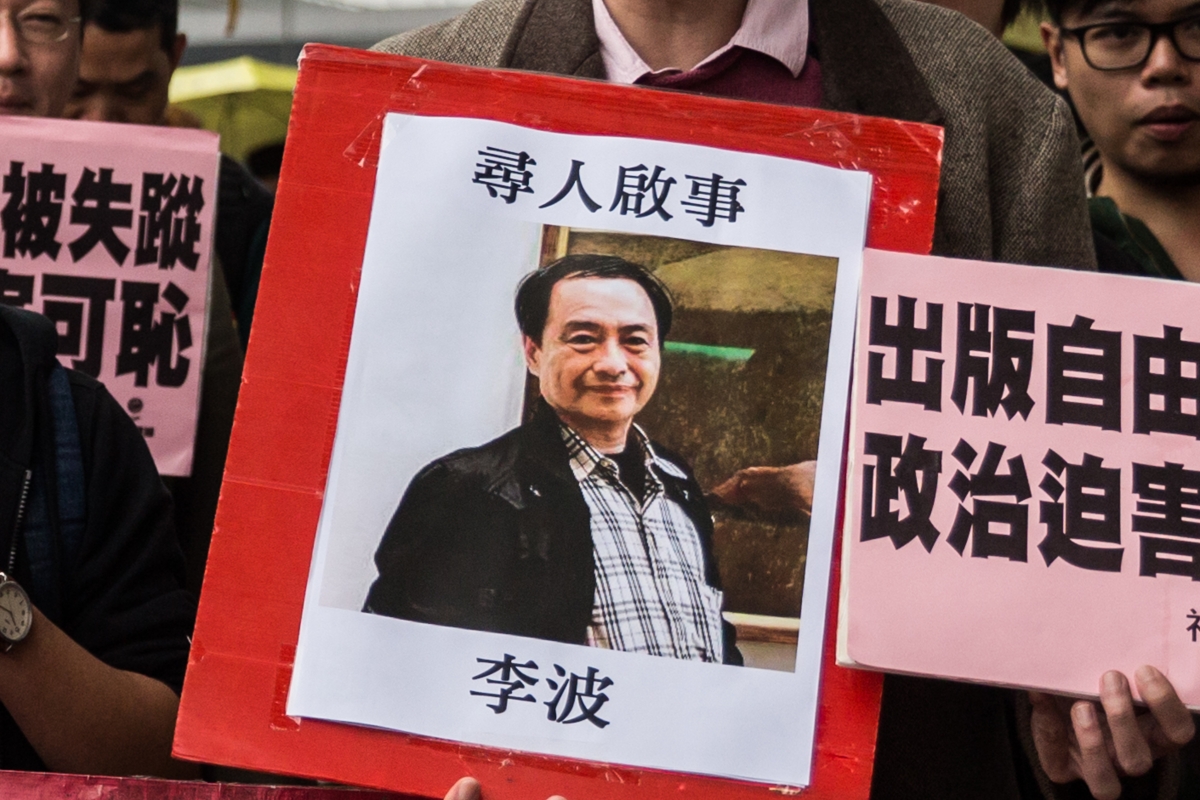Human Rights Watch: Iranian Women Still Banned from Watching Volleyball
|
Yesterday marked the beginning of the first ever beach volleyball tournament hosted in Iran. Despite repeated promises from the International Volleyball Federation (FIVB) that the ban on women attending matches would not be upheld – women were DENIED entry at the gates and intimidated by local officials.
A group of Iranian women traveled far, at great personal expense, all on the assurance from the FIVB that they would finally put an end to this blatant discrimination. However, when they tried to enter the stadium they were turned away by security.
Excuse our pessimism, but we’re growing tired of these empty promises. Unless this discriminatory ban is overturned, Iranian women who want to attend matches will continue to face great risks.
Paste the message below on the FIVB’s Facebook page
Stand with Human Rights Watch and the women of Iran. Visit http://www.hrw.org/watch4women to find out how you can pressure the FIVB to ban Iran from hosting until they stop banning women.
With much gratitude,
Minky Worden, |
Apple Opposes Court Order to Unlock San Bernardino Shooter’s Phone
By Samuel Miller
Impunity Watch Reporter, North America and Oceania
SAN FRANCISCO, California, United States of America — Apple Inc. CEO Tim Cook said his company will resist a federal judge’s order to obtain encrypted data hidden on a cellphone that belonged to Syed Rizwan Farook, who killed 14 people in San Bernardino last year. A California judge ordered on Tuesday that Apple help the Federal Bureau of Investigation (“FBI”) crack the security code to the phone, so that law enforcement officials can continue their investigation into that horrific attack.

In a statement released Wednesday, Cook said that an act such as this would undermine encryption by creating a backdoor that could potentially be used on other future devices.
The act sets up a legal showdown between Apple, which said it was eager to protect the privacy of its customers, and the FBI, who say that new encryption technologies hamper their ability to prevent and solve crime. In his statement, Cook called the court order a dangerous and unprecedented step by the federal government.
Cook said the FBI is essentially asking Apple to build a new operating system that could be installed on an iPhone recovered from an investigation. Such software does not exist today, but Cook said that if it did, there would not be a way to guarantee that the software would only be used for investigations.
“The government would have us remove security features and add new capabilities to the operating system, allowing a passcode to be input electronically. This would make it easier to unlock an iPhone by ‘brute force’ trying thousands or millions of combinations with the speed of a modern computer,” Cook wrote in his statement Wednesday.
The federal government’s request was made under the All Writs Act, a law which dates back to 1789, which allows the government to use its authority to issue orders that are not covered by a statute.
The tech industry and the government have long been at odds over how much access law enforcement and national security agencies should be given to private phone data. Although the tech industry says it wants to help, it’s reluctant to give away private information and data to government agencies, arguing that doing so fosters user distrust and raises the risk of hacker attacks.
Since September 2014, data on the latest Apple devices – such as text messages and photographs – have been encrypted by default. If a device is locked, the user’s passcode is required to access the data.
According to information obtained through the investigation by law enforcement officials, the phone stopped sending backup information to the iCloud server on Oct. 19, 2015. Furthermore, in its brief before the courts, the FBI stated it believed that Farook may have disabled the backup information function in order to hide evidence.
Any communications or data linked to the shooting after Oct. 19 would be accessible only through the device, according to the motion.
For more information, please see:
BBC News – Apple rejects order to unlock gunman’s phone – 17 February 2016
NY Times – Apple Fights Order to Unlock San Bernardino Gunman’s iPhone – 17 February 2016
TIME – Apple Leans on 227-Year-Old Law in Encryption Fight – 17 February 2016
Wired – Tim Cook Says Apple Will Fight Court Order to Unlock iPhone – 17 February 2016
Haiti Elects Interim President After Former President Stepped Down
By Samuel Miller
Impunity Watch Reporter, North America and Oceania
PORT-AU-PRINCE, Haiti — Legislators in Haiti have chosen an interim president for the country, the first step toward addressing the void left when former president Michel Martelly left office without a successor. Jocelerme Privert, 62, was elected yesterday to be Haiti’s interim president to fill the vacuum following the departure of former President Michel Martelly last week.

Interim President Privert vowed to complete elections and hand power over to the future-elected president.
Opposition parties had called for the establishment of an interim administration to oversee fresh elections in the country and had taken to the streets protesting the outcome of the first round of balloting on August 24 last year as well as preventing the staging of the second round of the Presidential Elections on January 24 this year. Haiti canceled the runoff presidential election in January amid violent protests over alleged fraud in the first round and after the opposition candidate boycotted the vote.
In a speech before he was elected, Privert vowed to ‘foster confidence across society, ensure stability, and hold the much-delayed run-off vote as soon as possible”.
Following his election, he proclaimed at the inauguration ceremony, “We have shown that we can transcend our differences and our quarrels in favor of the public interest. We should welcome the peaceful and inclusive nature of this new step in resolving the crisis.”
Privert faces a daunting task in the coming days and weeks: his first job will be to select a consensus prime minister and government.
Additionally, one of the major challenges ahead will be to reach an agreement about who can participate in the election. Many parties rejected the October results that led to a two-man race between opposition candidate Jude Celestin and ruling party favorite Jovenel Moise, citing voter fraud and corruption.
In an interesting note, Privert served as Interior Minister under former President Jean-Bertrand Aristide. It is believed that Privert’s selection could help calm the protests led by factions of Aristide’s Lavalas movement, which believed the elections organized under Martelly were not free and fair.
After former President Aristide was forced from power in 2004 by armed groups, Privert was jailed for two years on charges that he orchestrated a massacre of Aristide’s opponents. The charges were later dropped.
Another opposition party, a breakaway faction of Aristide’s movement called ‘Platform Pitit Dessalines’, called for Privert to create a balanced electoral council acceptable to all sides.
A new election is expected to be held April 24, and new president sworn in three weeks later on May 14th.
For more information, please see:
Jamaica Observer – Haiti elects interim president – 15 February 2016
Al Jazeera America – Haiti inaugurates interim president – 14 February 2016
BBC News – Haiti chooses interim president – 14 February 2016
CNN – Haiti gets new president — for 120 days – 14 February 2016
United Press International – Haitian lawmakers choose interim president – 14 February 2016
Britain Charges China With Violating Treaty After Hong Kong Bookseller’s Disappearance
By Christine Khamis
Impunity Watch Reporter, Asia
BEIJING, China –
Britain has accused China of abducting Hong Kong bookseller Lee Bo to the Chinese mainland. It also claims that China has breached the 1984 Sino-British Joint Declaration under which Hong Kong transitioned from British colonial rule to partial control by Beijing. According to Britain’s Foreign Office, the violation is the first serious breach of the Sino-British treaty.
In a biannual report on Hong Kong affairs, British Foreign Secretary Philip Hammond stated that Mr. Lee was “involuntarily removed” to China’s mainland without due process under Hong Kong law. The report is issued to Britain’s Parliament and reviews the state of Hong Kong and Britain’s ties.
A spokesman for the Chinese Ministry of Foreign Affairs, Hong Lei, has rejected Britain’s report. Mr. Hong states that Hong Kong affairs are a domestic issue for China and that other countries have no power to meddle, according to the New York Times.
Mr. Lee, who holds a British passport, went missing in late December. Chinese police confirmed that he was in China, had traveled there voluntarily, and did not wish to be in contact with Hong Kong officials.

Mr. Lee is associated with publishing house Mighty Current Media. Mighty Current is known for publishing gossip-style books about Chinese leaders. The publisher has released books about topics that many other publishers avoid covering, such as Chinese president Xi Jinping’s love affairs.
Four of Mr. Lee’s colleagues have also disappeared recently, including Gui Minhai, a Swedish citizen who vanished in Thailand in October. In January, Mr. Gui appeared on Chinese news sources stating that he had voluntarily returned to China to make amends for violating his probation there in 2003.
Under the Sino-British treaty, Hong Kong reverted back to China’s control in 1997 but is allowed liberal civil freedoms including freedom of speech, freedom of press, and a separate legal system. However, there has recently been much unrest among citizens of Hong Kong due to China’s increasing infringements on its autonomy.
For more information, please see:
The Free Press Journal – UK Accuses China of Violating Treaty in HK Bookseller’s Case – 13 February 2016
Associated Press – UK: Hong Kong Bookseller ‘Removed’ in Breach of China Treaty – 12 February 2016.
The Hong Kong Standard – UK accuses China of violating pact over bookseller Lee’s removal – 12 February 2016
The New York Times – UK: Hong Kong Bookseller ‘Removed’ in Breach of China Treaty – 12 February 2016
The New York Times – Britain Accuses China of Violating Treaty in Hong Kong Bookseller’s Case – 12 February 2016